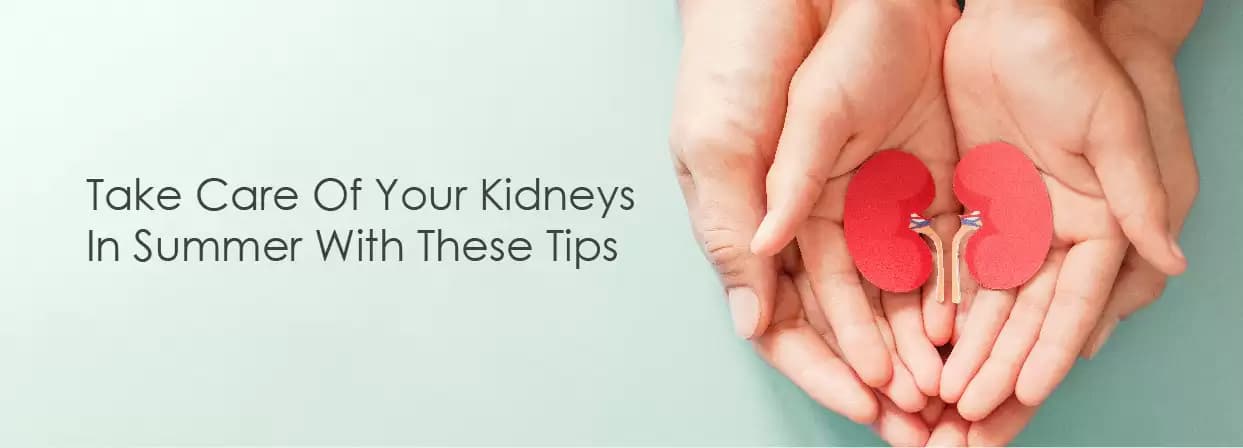
Summer has arrived with its scalding heat. We need to take special care of ourselves to stay protected during these sunny summer months.
Summer has arrived with its scalding heat. We need to take special care of ourselves to stay protected during these sunny summer months. However, if you are suffering from CKD(Chronic Kidney Disease), you need to stay extra cautious to avoid its harsh effects on your kidneys. Here, we have discussed a few tips that will help to keep kidney diseases at bay. Our eminent kidney specialist in Kolkata has helped us to list these tips below. Keep on reading to learn more.
In our hectic daily lives, we often forget to take care of the tiny things that are most important to our bodies. And the result is that we fall sick.
As suggested by our kidney specialist in Kolkata, during the summer, the following renal diseases worsen.
-Renal Stones and their Consequences
-Acute Kidney Failure as a result of Dehydration
-Renal dysfunction( due to viral illness)
Inadequate water consumption causes urinary tract infection, which causes a great deal of discomfort while peeing. If you do not urinate frequently, there is no flushing out of the infection, which allows the illness to progress to chronic kidney disease and kidney stones.
Drinking 1.5 to 2 liters of water every day is the greatest approach for avoiding infection.
As recommended by the kidney specialist in Kolkata, the following tips can help you stay hydrated for a longer time, even during summer days.
As recommended by our experts from the best kidney transplant hospital in Kolkata, if you are on dialysis, consult your doctor for advice on how to safeguard your access when swimming. When swimming, it is usually recommended that you cover your vascular access with a protective dressing. Your healthcare provider will instruct you how to appropriately clamp your PD catheter shut if you are on peritoneal dialysis (PD). To avoid stress on the catheter when swimming, the PD catheter should be immobilized. As soon as you finish swimming, change your clothes.
Written and Verified by:

Dr. Sandipan Halder is a Consultant in Nephrology Dept. at CMRI, Kolkata, with over 7 years of experience. He specializes in dialysis, renal biopsies, chronic kidney disease, kidney stones, and transplant nephrology.
Similar Renal Sciences Blogs
Book Your Appointment TODAY
© 2024 CMRI Kolkata. All Rights Reserved.